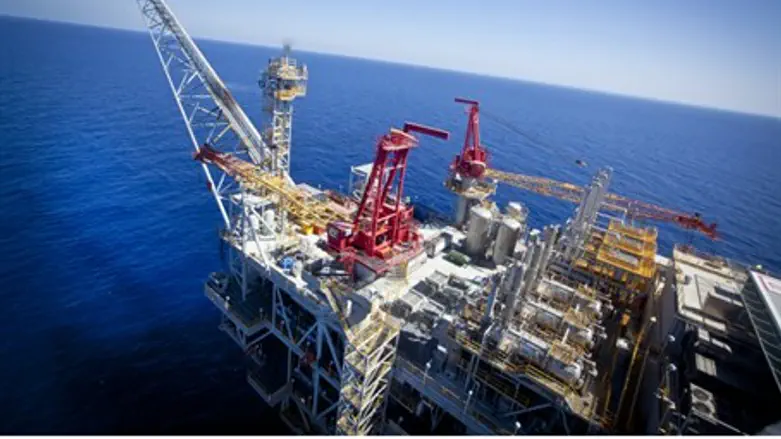
Prime Minister Binyamin Netanyahu has vowed that Israel will act as soon as possible to tap into massive natural gas deposits off the Israeli coast, and said he won't allow the process to be delayed by the ongoing controversy over allegations it is being monopolized.
"We will not repeat the mistake that other countries made when they sought ideal solutions for their gas and sometimes for their oil and as a result of which both the gas and the oil have remained below the seabed or underground," Netanyahu declared at the start of Tuesday's cabinet meeting.
"They had an ideal solution that was not realistic. In this situation they could pat themselves on the back for wanting the most competitive framework that was never realized," he continued, but noted that as a result "many years have passed in which many countries have not seen a bit of energy from these sources."
"We will not do this," Netanyahu vowed. "We will act in accordance with a prudent consideration that balances competition and worthwhileness and extracts the gas from the depths of the sea."
His statement follows the resignation of the head of Israel's Antitrust Authority, David Gilo, who expressed his opposition to the dominant position of US giant Noble Energy and its Israeli partner Delek to exploit gas from the Leviathan and Tamar offshore gas fields.
In his letter of resignation submitted to Economy Minister Aryeh Deri, Gilo wrote that preserving the stranglehold of Noble and Delek on the natural gas market "undermines competition, and the power of authority" of the Antitrust Authority.
The watchdog moved late last year to scrap the deal that gave the two firms control over Leviathan, at the time classifying their partnership as a "cartel."
The size of the Leviathan field is estimated at 535 billion cubic meters (18.9 trillion cubic feet) of natural gas, along with 34.1 million barrels of condensate, making it the largest gas deposit found in the world in a decade.
Noble and Delek also control the Tamar field, which holds 250 bcm of natural gas, and lies 80 kilometers (43 nautical miles) west of the northern Israeli port city of Haifa.
Netanyahu voiced his "regret" over Gilo's resignation, but insisted it would not sway his decision, asserting that the gas fields would deliver a significant boost to the Israeli economy.
"There is an outline here that is the result of expedited work by various experts in the field. They did not all agree. To my regret, the head of the Israel Antitrust Authority did not agree, but we are going forward.
"I will not allow any consideration or pressure, or populist moves to prevent the flow of gas to the State of Israel. We will extract this gas from the depths of the sea, we will bring it to the citizens of Israel and we will make society as a whole better off."
Recent major oil and natural gas finds have already paid rich dividends to the Jewish state.
In April, it was revealed that profits from Israel's natural gas fields had made up for all the economic damage of last summer's war with Gaza terrorist groups.
In 2013, prospectors said they had discovered what appeared to be a significant deposit of crude oil off the Israeli coast.